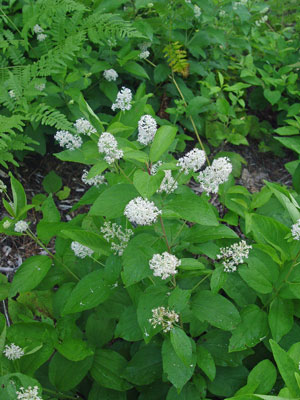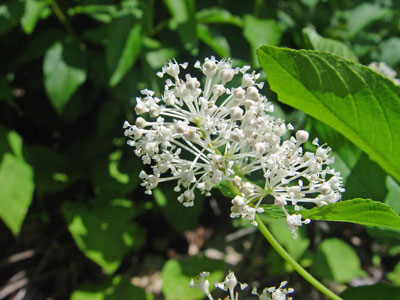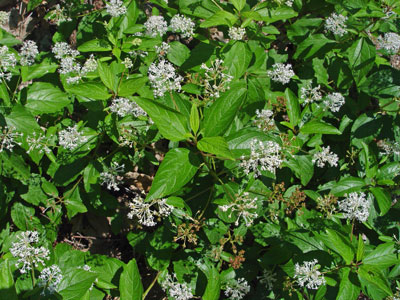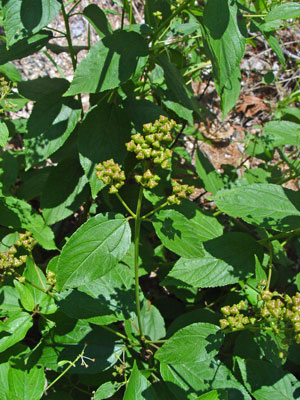DACF Home → Bureaus & Programs → Maine Natural Areas Program → Communities, Plants, and Animals → Rare Plants → Ceanothus americanus

Ceanothus americanus L.
New Jersey Tea
- State Rank: S1S2
- Global Rank: G5
- State Status: Threatened
Habitat: Dry open woods and gravelly or rocky banks. [Dry barrens (partly forested, upland); Rocky summits and outcrops (non-forested, upland); Old field / roadside (non-forested, wetland or upland)]
Range: Florida to Alabama, north to central Maine, and west to southern Manitoba. In Maine, the northern limit of New Jersey Tea is Oxford, and potentially as far north as Bangor.

Aids to Identification: Ceanothus americanus is a shrub with alternately arranged, ovate, finely toothed leaves, 2-8 cm long, and with 3 prominent veins of the leaf blades. It grows from a deep reddish root, and its small white flowers occur in oblong clusters. The petals have a conspicuous narrow basal portion (called a claw).
Ecological characteristics: In Maine, this plant often grows in dry, rocky or sandy woods. It seems to prefer partial shade or full sun.

Phenology: Flowers May - July.
Family: Rhamnaceae
Synonyms: Ceanothus americanus L. var. intermedius (Pursh) Torr. & Gray; Ceanothus americanus L. var. pitcheri Torr. & Gray; Ceanothus intermedius Pursh
Known Distribution in Maine: This rare plant has been documented from a total of 9 town(s) in the following county(ies): Androscoggin, Kennebec, Oxford, Penobscot.

Reason(s) for rarity: At northern limit of range; not rare southward.
Conservation considerations: This shrub occurs in dry, semi-open conditions; suitable habitat is sometimes provided by artificial habitats such as roadsides. Persistence of the plant can apparently be compatible with maintenance of these habitats, but maintenance activities should be planned with the species in mind where possible.